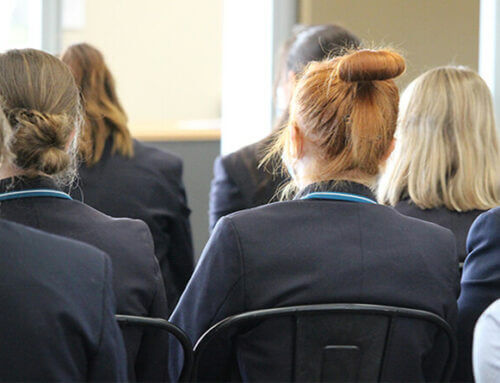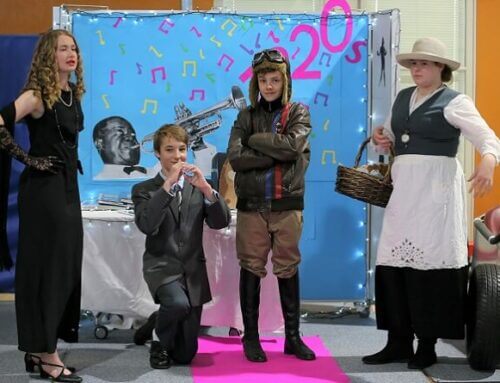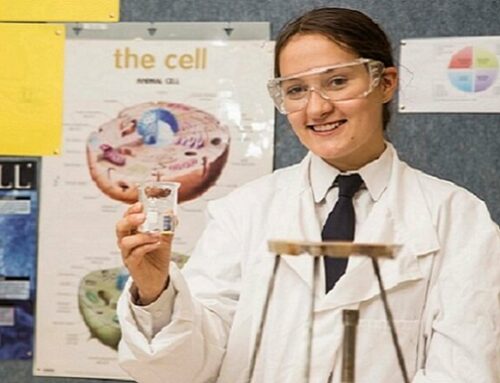Cornish College is a really special place. We are largely an inquiry-based learning environment, with natural, personal, socio-cultural and urban/technological sustainability underpinning our curriculum. Everything we do helps students understand how they can make a difference and create a sustainable world.
Our primary school also offers the International Baccalaureate Primary Years Programme, which is very exciting as I’ve always wanted to develop a Performing Arts program that complements all of the above, from early learning right through to Year 12.
When I considered how to implement drama in the primary years, I wondered how I could fit it into the timetable. Like most schools, ours is extensive and busy, with a robust curriculum to meet the needs of a diverse range of students and their abilities. Similarly, one or two 40-minute lessons within a 10-day cycle seemed to lack continuity and a purposeful focus. I wanted time, just like all other teachers, but could there be another way? Also, my initial thinking didn’t consider practical factors, such as finances and resources.
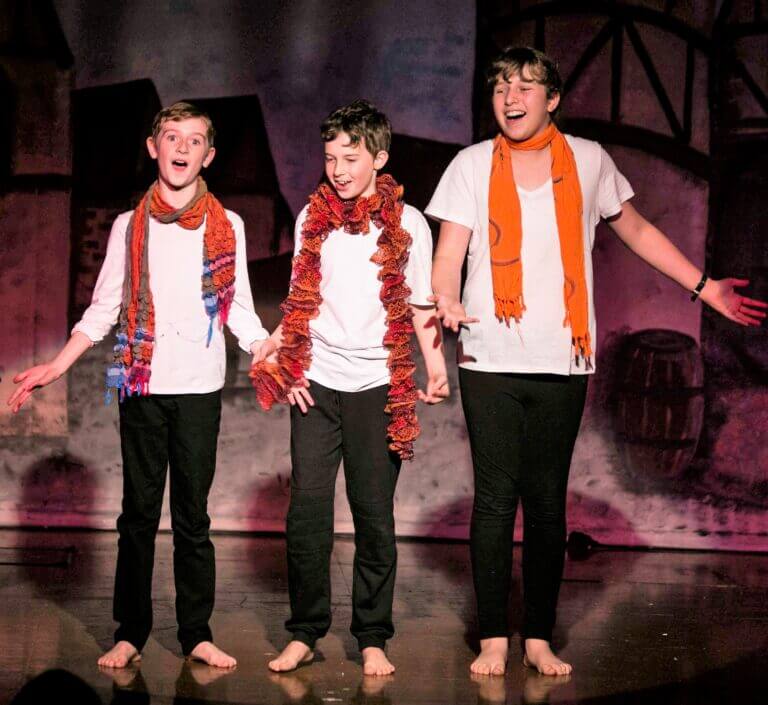
I started to explore how we could use drama as a pedagogy rather than a stand-alone subject. Up until now, much of my drama teaching has been in a drama classroom where students have worked towards achieving drama-based standards. But research increasingly suggests positive learning outcomes are associated with integrating drama pedagogy into other subjects, to enhance memory of the experience. As Hardiman, Mahinda, Bulla, Carrana and Shelton (2019) note, arts experiences are thought to elicit emotional cognition, employ creative thinking pathways, and recruit cognitive processes that inherently facilitate long-term recall.
As we’ve also known for a long time, drama practices can encourage transdisciplinary learning. Hardiman, Mahinda, Bulla, Carrana and Shelton (2019) argue that arts integration has been described as promoting the effective transfer of knowledge and skills from arts to non-arts domains and to help students draw connections among different disciplines.
I was particularly interested in exploring aspects of students’ learning in-depth with empathy and perspective. It was important to me that students learnt drama skills, but I wondered whether they could grasp those skills in a way that also benefitted other things they were learning.
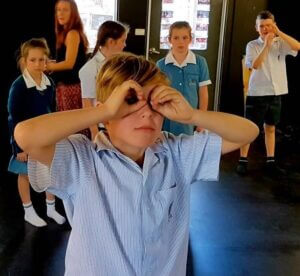
After further exploration, I conducted a scope and sequence of the drama curriculum throughout the College, identifying which concepts could be transferred from one subject to another, from one topic to another. This uncovered more questions – why wasn’t I working to incorporate things I knew to be true? Why can’t we try a different way? What do I have to lose? Then, I did what all drama teachers do best – I got creative and developed a new program!
While still in its pilot stage, this new program currently sees me as a roving specialist. I spend time in a year level when their teachers and I can see value and opportunity to use drama for a specific purpose. The experiences vary in length – some are a couple of periods per week over a few weeks, others for a lesson or two at the beginning of a unit and then again at the end. We often come from a mutually conceptual perspective and aim to go deeper into an area of understanding in ways that only drama can.
When I spend time looking at specific units, it is amazing how many opportunities there are to collaborate. Talking with class teachers has also helped me to work out where timely, worthwhile work can occur.
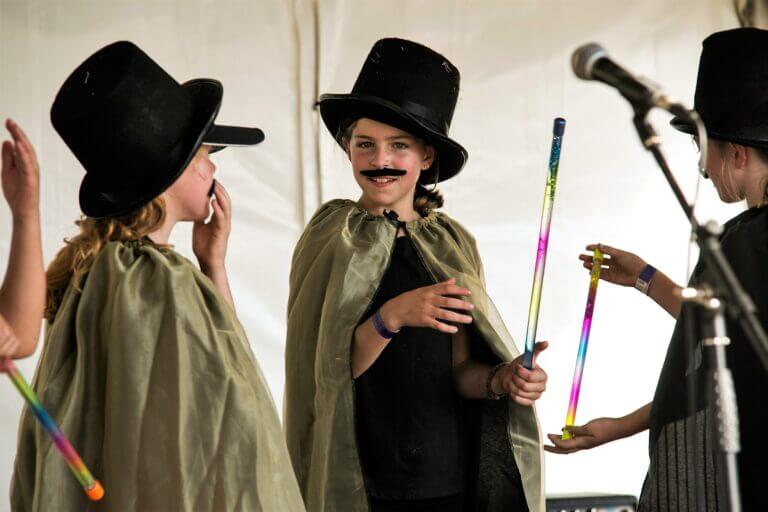
Prep teachers have reported that students’ summative tasks have displayed greater depth of understanding across all areas we covered. And, as a bonus, we now have more Prep students in our cocurricular afterschool Drama Club!
The program is not perfect – I’m tweaking it all the time. Timetables and available spaces inevitably change and there is lots of negotiation required, which takes time. Establishing rapport with students also takes time so that effective learning can take place. Formal reporting and assessment for drama outcomes is also something that needs further development.
I am very privileged to work in a progressive, open-minded school that considers my unique ideas. I am also lucky to work with teachers who are happy to meet with me, value what drama can offer, are willing to discuss student outcomes and learning and then welcome me into their classroom. I also know from student and teacher feedback that it works, and this is what gives me the motivation to continue this work.
Lauren Zeigler has been a Drama and English teacher for 19 years, the past eight of these at Cornish College. She is fascinated by the notion that theatre can have the power to create change, whether it be for a fleeting moment with one person or a permanent mindset with a group of people.
At Cornish, Lauren teaches Drama from the Early Learning Centre to Year 12, Years 7 – 9 English and is one of the Performing Arts Coordinators, overseeing Instrumental Music and Drama.
She has also been a Victorian Curriculum and Assessment Authority assessor for VCE Theatre Studies, a teacher educator for the Melbourne Theatre Company and on various committees including a member of the Committee of Management at Drama Victoria and the Arts and Cultural Advisory Committee for the City of Kingston.
The effects of arts-integrated instruction on memory for science content
Mariale M Hardiman, Ranjini Mahinda, John Bulla, Deborah T Carrana, Amy Shelton
Trends in Neuroscience and Education
Volume 14, March 2019, Pages 25-32
The School Drama Book: Drama, Literature and Literacy in the Creative Classroom
Robyn Ewing and John Saunders, 2016

